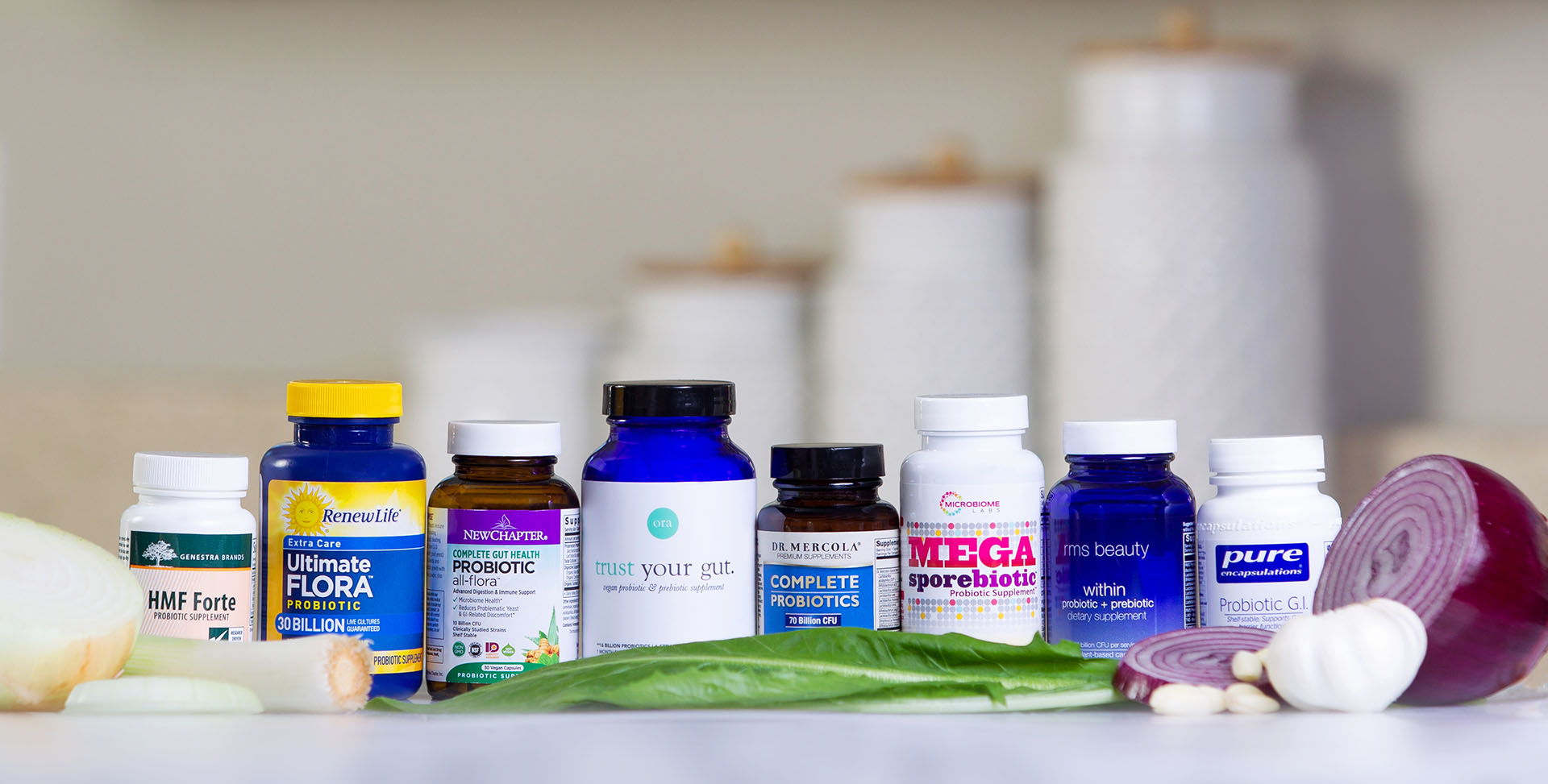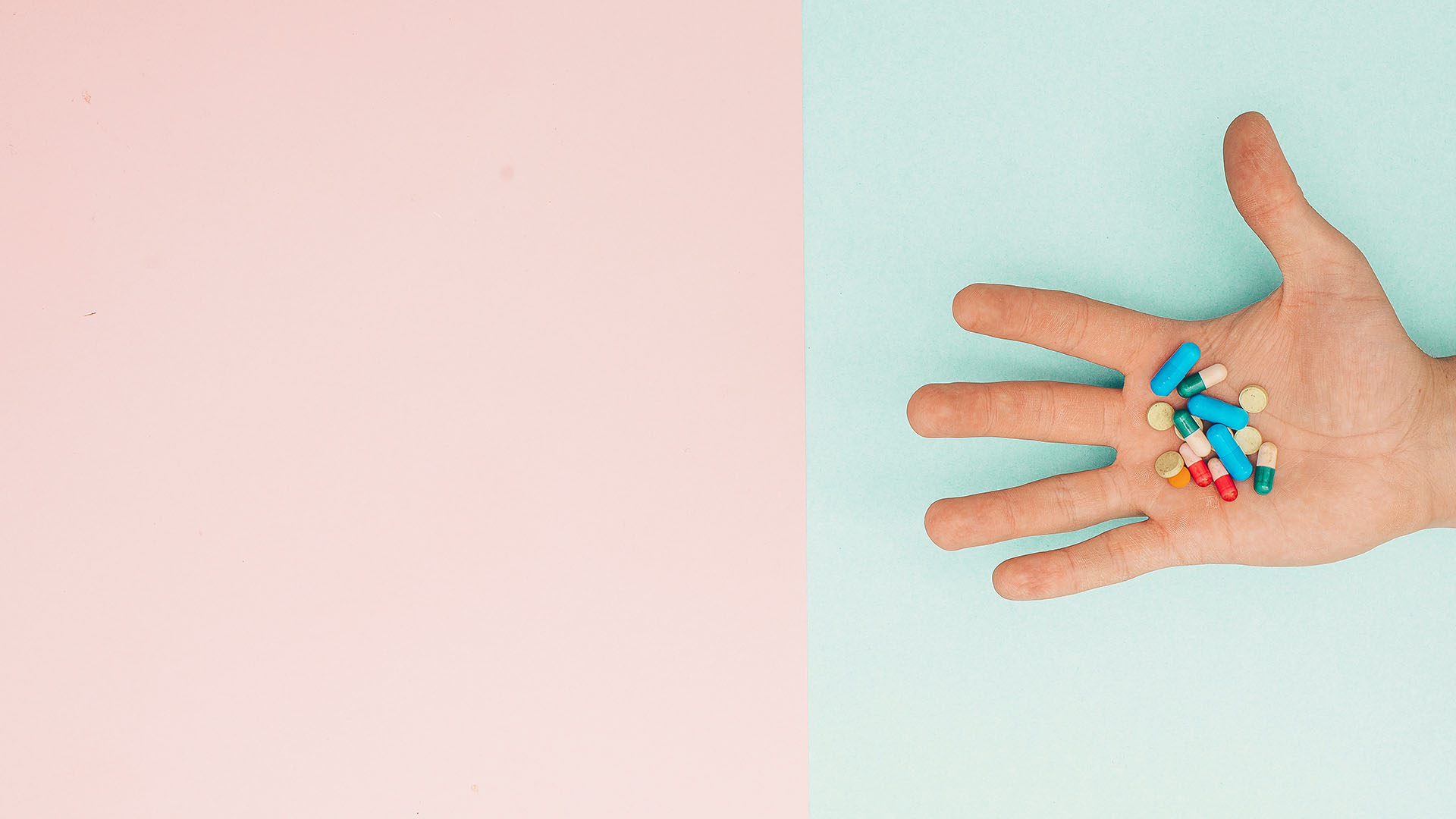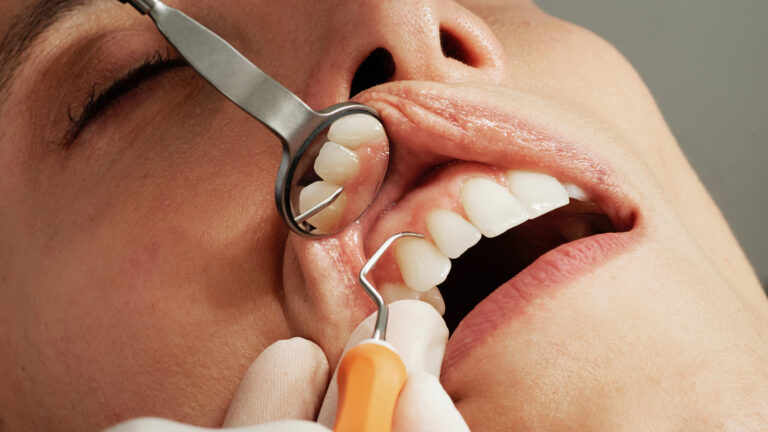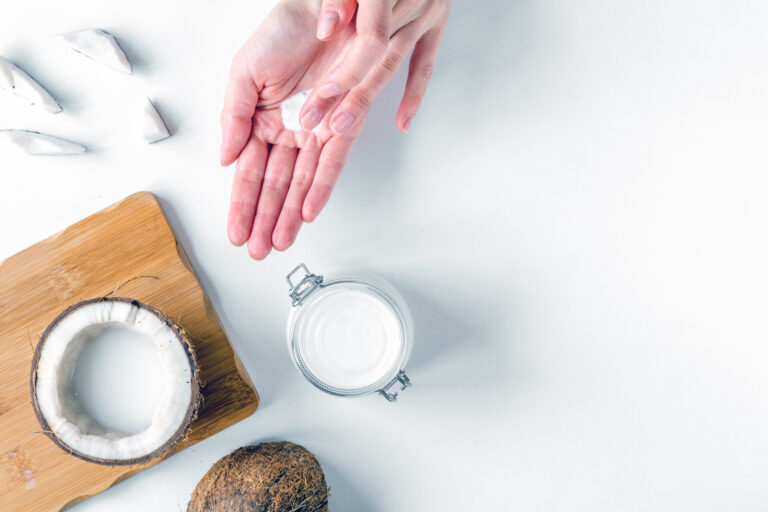The supplement industry is worth billions of dollars, with some experts estimating it’s worth at about 37 billion dollars per year. For an industry worth a significant amount of money, there’s a lot of confusion surrounding it. Within the general population, it has many people asking the question: What supplements should I take? And do they even work?
In this article, we will explore common health issues and the supplements that address them. These health issues or concerns include sleep, fatigue, stress, fat-loss, detoxification, constipation, and headaches. Arguably, the importance of these concerns may vary based on your own personal health condition. But what do you need to know about supplements in regards to these issues? Are there down sides to some of them? Are there alternatives? We’ll explore these in more detail below.
Supplements: Do They Even Work?
Do your eyes flip to the back of your head when you’re down the supplement aisle?
You’re not alone.
The supplement industry tells you they work, but should you trust them? After all, their ultimate goal is to make a profit. And that’s not to say that some of them don’t work. Yet, it’s important to do your own research before wasting your hard-earned cash on them – especially on something that may only be a band-aid solution in the end.
Ideally, you want to be able to make up your own mind about them. You want to be able to make your own decisions regarding your health with confidence.
After reading this article, we hope to empower you with just that. By understanding how the body heals and uncovering the truth behind some of the most popular reasons for supplementation, you can make an informed choice about your health based on truth and fact – and not just based on what you’re hearing from the supplement industry.
This article will expose and explain supplements that are used to ‘force’ a change upon the body, as well as provide natural alternatives that produce the same effect, but do so without manipulating bodily systems.
Criteria used to identify and recognize these natural and “good” supplements include that they do not have a “rebound effect.” This means that they don’t produce withdrawal symptoms when you don’t take them; they don’t negatively impact your long-term health by producing a dependency on them, nor do they produce any short-term deception. There is no trade-off with them. Instead, they retrain the body and mind to do what it does naturally. They tap into its innate wisdom and help restore your body’s natural processes. Let’s take a more in-depth look.
Health Issues & Supplements That Address Them
So, what supplements should you take to address some of the most common health concerns? And what are some natural remedies that can replace common supplements and facilitate your body’s natural healing abilities?
1. Sleep
Take This: 200 mg of Zen
NOT That: CBD or Melatonin
Surprisingly, 50 to 70 million people across the United States have a sleep disorder. And in today’s fast-paced and overstimulating society, it’s no wonder why. Technology has allowed us the ability to stay up long after dark. Yet, our natural circadian rhythm is set-up to respond to darkness and daylight. This creates a variety of sleep issues. Further, common health problems like being overweight, chronic pain conditions, or respiratory disorders, stress, and over-caffeination can also make sleeping difficult.
While many people turn to CBD or melatonin for inducing sleep, GABA and L-theanine combinations, such as that found in 200 mg of Zen, are just starting to gain speed in the mainstream. GABA and L-theanine trigger the parasympathetic system. The parasympathetic nervous system is your rest and digest system. It saves energy by slowing down your heart rate and increasing intestinal and digestive activity. Ultimately, it helps you relax and ease into sleep. You might be exhausted, but if your mind is racing late at night, it may be difficult for your parasympathetic nervous system to kick in. Your stress levels may be too high. You might feel overly anxious. Research has shown that GABA and L-theanine improve sleep quality and duration. They calm you and calm the overactive mind, allowing you to get the necessary sleep you need.
On the other hand, CBD and melatonin products may merely mask the problem. They make you feel tired. Yet, if you’re anxious or stressed, being tired may not be the issue. You might feel completely drained, but that doesn’t mean you’ll be able to sleep. There is also debating evidence on both sides of CBD and melatonin as to whether they actually do help you fall asleep. For some people, it works. For others, it doesn’t. Studies go both ways. It’s also been shown that if the CBD product has THC, it may also disrupt your sleep and not allow your body to go through the natural sleep cycle. In other words, although you may have an easier time falling asleep, your body may not experience the deep, naturally restorative sleep required for optimal daytime focus and energy.
It’s also been shown that if the CBD product has THC, it may also disrupt your sleep and not allow your body to go through the natural sleep cycle. In other words, although you may have an easier time falling asleep, your body may not experience the deep, naturally restorative sleep required for optimal daytime focus and energy.

Sometimes, the best supplement is no supplement at all. Perhaps all you need are certain activities to help you sleep and help reset your natural circadian rhythm. Such activities may include getting more sunlight throughout your day, going to bed and waking up at the same times, and limiting exposure to media screens at least an hour before bed bed. If you’re having trouble sleeping, it’s important to look into regulating and restoring the whole rhythmic cycle, which also includes preparing your body for bed during your awake hours. Supplements, in any form, aren’t always the answer.
2. Fatigue
Take This: Nadovim
NOT That: Caffeine
Today, many people rely on caffeine to help wake them up. The morning cup of joe has become a staple in many individuals’ lives. But it begs the question: are you using that morning cup of coffee as a crutch or are you using it as an optimization tool here and there?
Most individuals depend on caffeine to wake up or feel alert. This may mean that your body isn’t producing the proper chemicals to wake up and feel motivated naturally. Caffeine prevents the neurotransmitter responsible for motivation—dopamine—from being reabsorbed into your system, so these brain-cell programming signals hang around in your brain longer and create that drive to get up and get going. Caffeine also blocks adenosine, which is a neurotransmitter that builds up throughout the day in the brain and causes tirednessIn other words, caffeine doesn’t actually wake you up, it just prevents you from feeling tired and unmotivated. It fails to address the real problem as to why you’re feeling tired in the first place. Did you not sleep well? Are you failing to notice some kind of nutritional deficiency, such as a lack of iron, magnesium, potassium, vitamin D, or vitamin B12, that is making you feel fatigued? Are you low on serotonin, a neurotransmitter that helps you feel energized and positive, or on dopamine? Are you experiencing breathing issues (such as sleep apnea) or other condition that may be preventing your sleep hours from having the intended rejuvenating effects? You won’t know if you’re always reaching for cups of coffee throughout your day to mask the effects of tiredness
Also, the dosage does matter. If you’re having one cup of coffee in the morning, it’s probably nothing to worry about. But if you find you’re ramping up the amount of coffee you have throughout your day, you may want to dial it back and examine other ways to combat tiredness. Caffeine in large amounts (more than 500-600 mg a day) may contribute to sleep disturbances or insomnia, which will simply exacerbate the problem of daytime fatigue. Caffeine is also a substance that can lead to dependency and its withdrawal symptoms can include irritability, headaches, lethargy and even depression.
If you’re looking for a more naturally sustainable route that doesn’t mask your potential health problems or cause dependency, NAD and Coenzyme Q10 actually increase your body’s natural energy reserves. These supplements address the root causes, such as inefficient cellular energy production and mitochondria function. In fact, NAD has been found to help in chronic fatigue syndrome, depression, anxiety, sleep difficulties, focus and concentration, and much more.
Many individuals feel more tired today due to the overstimulation present in today’s society. This depletes your existing NAD stores, creating a deficiency – which often goes unnoticed. By adding NAD and Coenzyme Q10-containing supplements, like Nadovim, you can help replenish your body’s stores of these compounds. Thus, you’ll feel less fatigued.
3. Stress
Take This: Ashwagandha or Adaptogenic Herbs
NOT That: CBD or Marijuana
In the medical community, CBD and pharmaceutical approaches have led the way in dealing with stress and anxiety. Most of us know that chronic stress can lead to a variety of health problems. And while CBD and certain pharmaceutical approaches can reduce stress throughout the body, they fail to utilize the body’s natural ability when it comes to handling stress. Again, it’s a problem where these substances are merely masking the issue, instead of facing it head-on.
Adaptogens are herbal medicines that promote balance and stabilization throughout the body. In other words, they help the body naturally regulate. In turn, this decreases stress. For instance, studies have shown that ashwagandha, a medicinal herb traditionally used in Ayurvedic healing, improves an individual’s resistance toward stress. Further one scientific review examined the use of this medicinal herb on anxiety and stress across a variety of studies. The authors concluded that after treatment with ashwagandha, subjects reported less stress and less anxiety.
How does it do this? As aforementioned, it’s an adaptogen which means it helps the body stabilize and self-regulate. Experts theorize that ashwagandha helps your body regulate the nervous system and chemicals associated with stress. This has been shown in both human and animal studies. On the other hand, other supplements like CBD, regulate your body for you. As soon as you stop taking CBD, the effects no longer remain. The opposite is true for adaptogens like ashwagandha. You can take ashwagandha and then stop taking it. But you, then, also retain the results – unlike other supplements. Thus, if you’re feeling stressed, ashwagandha may be more beneficial for you and your long-term health than other supplements. You won’t have to continue taking it because the body adapts accordingly, which can’t be stated for other substances, such as CBD.

4. Fat-Loss
Take This: Probiotics
NOT That: Stimulants
There is a ton of misguided advice when it comes to losing weight. Many individuals assume that they simply need to increase their metabolism and the fat will fall off. They turn to products, such as Ephedra, an herb frequently used to lose weight. But this herb has various side effects – many of which are unsafe and can lead to life-threatening conditions. In fact, weight loss products containing Ephedrine, the alkaloid responsible for the metabolic impact on the body, have been banned in many places, including the United States, due to these side effects.
Of course, the weight loss dilemma often isn’t just a metabolic problem. It’s also an issue with the gut, with satiety, or with an individual’s diet. You might continue to feel hungry because you aren’t absorbing certain nutrients. When this is the real problem, you should look to improve your microbiome, as well as assessing your diet. Are you getting the right nutrients?
In a 2013 scientific review, the authors stated that several studies have demonstrated associations between imbalances in the gastrointestinal bacteria microbiome and chronic low-grade inflammation and metabolic disorders, which ultimately result in metabolic syndrome, obesity and diabetes. Further, they found that microbial community composition was more stable during the period of probiotics treatment.” It’s, thus, been suggested that probiotics may help stabilize and balance out the gut microbiome, leading to more functional metabolism. By adding probiotics into your diet, you may be able to increase your metabolism through proper nutrient availability and absorption.
Probiotic dietary supplements generally contain Lactobacillus and/or Bifidobacterium bacteria. Various studies on the consumption of several strains of Lactobacillus have found a connection between their capacity to balance the gut microbiome and fat loss, though research is still determining the true impact of probiotics on weight loss.
From the standpoint of safety, taking probiotics is a much sounder choice than taking Ephedra or stimulants for weight loss. Since there is strong evidence to indicate that balancing the gut microbiome can reduce inflammation in the body in general, it is compelling to take these supplements from a general health point of view.
If you have difficulty losing weight, it’s important to think about why your metabolism is slow beyond dietary reasons. Are there stress factors that could be playing a role? Is it lack of sleep, exercise, or other lifestyle variables? Unfortunately, weight loss isn’t a one-size-fits-all. There are so many possible factors at play in body weight management; you need to look at your lifestyle and health from a holistic view and make global improvements – not simply rely on a supplement, especially if you want to see sustainable losses in your body weight.
5. Detox
Take This: Hevert Detox Remedies or Green Tea Phytosome
NOT That: Cheap or Low-Quality Antioxidants
Do you regularly turn to cleanses to “detox” your system? You’ve heard that one of the best things you can do to feel good and have good digestion is to flush your system clean.
Generally, over-the-counter cleanses simply force things out of you. They don’t necessarily optimize your organs of elimination. It’s like unclogging a drain. You can put pressure on the water and unclog it, but that doesn’t necessarily solve the root cause of the problem. Why was it clogged in the first place?
With a detox, your general goal is to help your organs of elimination perform better. However, many detox protocols are just pushing toxins and compounds out of you rather than optimizing the organs responsible for these processes. The underlying problem may still be there after you’ve completed the detox or cleanse.
For example, you do your over-the-counter cleanse, but you continue to drink alcohol, or frequently take acetaminophen to help with pain issues; both these habits will end up overtaxing your liver. You end up undermining your efforts to optimize your body’s natural detox processes. No matter how many supplements you take or detoxes you do, you won’t make gains if you’re drinking a ton of alcohol every week; are constantly exposed to heavy metals; don’t get enough sleep; and eat too much sugar, salt, or artificial sweeteners.
What can you ADD to your diet that will help your body’s elimination processes and the organs that natural “detox” you? Antioxidant-rich foods can help protect your cells from the impact of your body’s ongoing natural functions, such as digestion, and from harmful environmental exposure to pollutants, tobacco smoke, a poor diet, and/or alcohol consumption. However, taking antioxidant supplements may actually have an adverse effect on health when taken in large amounts. This is one area where you want to rely on diet choices. For optimizing the amount of antioxidants in your body, consume more Berries, fruits, nuts, cocoa, vegetables, spices, coffee and green tea.
If you are firmly set on taking a supplement for supporting your body’s natural detox processes, consider taking a spagyric detox remedy or a green tea pill, which is made from the crushed leaves of green tea. Ensure the source of the tea is organic, so you are not unnecessarily exposed to toxicity from pesticides and therefore undermine the reason you are taking the supplement in the first place.
6. Constipation
Take This: Turkey Rhubarb or Rhalax
NOT That: OTC Laxatives
Do you always feel heavy or bloated? Your digestive system isn’t regulated and you aren’t sure why. You feel constipated and uncomfortable a lot of the time.
Many individuals turn to diuretics or laxatives in order to find some kind of relief. Similar to the detox section above, these types of medicines often only flush the system. They avoid the root cause leading to your constipation in the first place, and they fail to optimize your organs of elimination. There are many possible underlying causes for constipation, including anatomical issues (eg, pelvic flow dysfunction), endocrine or metabolic disorders (eg, hypercalcemia, hypothyroidism, pregnancy, diabetes mellitus), neurologic disorders (stroke, Parkinson disease, multiple sclerosis), connective tissue disorders (eg, scleroderma, amyloidosis), eating disorders, and certain medications ( antidepressants, iron, bismuth, anticholinergics, opioids, antacids, calcium channel blockers, nonsteroidal anti-inflammatory drugs (NSAIDs), sympathomimetics, and antipsychotics).
Your first line of inquiry about your constipation should be to investigate if any of these possible health issues or medications may be the cause.Then, instead of taking short-term supplements or medications that work to provide instant relief, look at assessing your diet. Where can you eliminate or avoid aggravating foods or foods that don’t sit well? Your body is fairly good at letting you know when it doesn’t like something, so take note of what those foods are.
You may also want to analyze the amount of stress and anxiety you experience. There’s a huge link between gut health and stress. In fact, studies have shown that those with chronic constipation issues often have a mood disorder, such as anxiety or depression.
There are natural remedies such as turkey rhubarb or Rhalax, that can promote peristalsis, meaning that they create muscle contractions that aid in the movement of food through the digestive tract. In turn, this can help relieve constipation. These options are a sound way to use supplements to address constipation when and if you know you cannot eliminate its cause.
7. Headaches
Take This: Water and Breathing
NOT That: Tylenol
Headaches are exhausting. And they’re very common. Maybe you typically reach for Tylenol to soothe the pain, but you know that you probably shouldn’t be taking it every day. It is taxing on the liver and it can have other negative gastrointestinal side effects. As aforementioned, sometimes the best supplement is no supplement at all.
At Innovative Medicine, we always encourage people to take a step back from any health problem or condition and regain clarity surrounding the truth of the human body. Your body has a powerful healing ability, and it’s not used often enough. If you have a headache, there could very well be multiple causes, but a Tylenol deficiency is surely not one of them. You may not be perfect – nobody is – but you have the tools within you to be healthy, happy, strong, and fulfilled.
Many people underestimate the effect that proper oxygenation and hydration can have on the body. Simply drinking more water can help because . dehydration is one of the most frequent causes of the common headache. By drinking more, you can properly hydrate and optimize your body. Consequently, you rid yourself of a headache and help flush out toxins.
[add-related-sc title=”A Short Guide to Breathing Right – the Buteyko Breathing Method” href=”/short-guide-breathing-right-buteyko-breathing-method/”][/add-related-sc]
Another commonly overlooked concept involves breathing. A highly toxic state causing headaches may be caused by not getting enough oxygen. This often happens through shallow breathing caused by stress. It can become a chronic condition where you get headaches regularly and you can’t quite pinpoint why. Taking slow and deep breaths, as well as proper hydration can help. Your solution to better health doesn’t necessarily involve supplements. Sometimes, it’s about going back to the basics.
Less is More: Keep it Simple
Sometimes, asking the question, ‘What supplement should I take?’ isn’t the right question to be asking. In other words, it’s not entirely about what you put in your body, but what you’re trying to get out of it. You shouldn’t have to take supplements all the time. And sometimes, the best solution is not an immediate fix. These short-term fixes may eventually have cumulative effects in the long-term – ones which may not benefit you or your body.
In truth, behavior changes can often serve as the best substitute for a supplement. It doesn’t cost anything, and it’s a change you can make that would last you for a lifetime of good health.
Further, taking a supplement to address an issue may only address the symptoms – as opposed to a hidden illness or imbalance. It prevents you from getting the proper treatment for a deeper cause. In fact, since supplementation often involves self-diagnosis and because they are freely available, hidden root causes may go undetected for years. Ultimately, if you’re experiencing any chronic health concerns or symptoms, you should make sure to get professional help to solve the problem – or at least, start a thorough investigation into what could be contributing to your health dilemma.
* Disclaimer: The statements made in this article have not been evaluated by the Food and Drug Administration. Any products or treatments mentioned are not intended to diagnose, treat, cure, or prevent any disease. Please consult a licensed medical practitioner for medical advice. At Innovative Medicine, we believe in transparency. We want you to know that we may participate in affiliate advertising programs pertaining to products mentioned herein.





